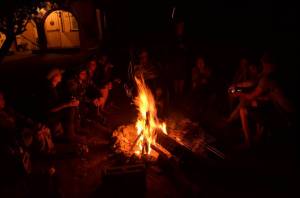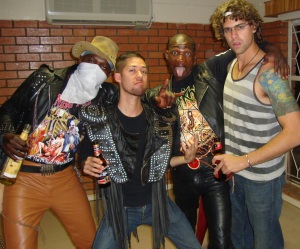In a matter of a week, my life has completely transformed. I am now a resident of the “big” city, Gaborone. Grocery stores are mere walks away, restaurants and movie theatres abound (sort of), and I can often find access to good internet.
I said my farewells to Rakops a little over a week ago. Some of it was sentimental, and I was surprised to see some misty eyes during my departure. I think that the impact I had in the village will be remembered, and that gives me warm feelings. To be honest, I have been so excited to start the next chapter of my service that I don’t think I have fully processed the end of my village life.
There will always be a lot of struggle associated with that place for me, both environmental and interpersonal, but the end was quite positive. In the last week at my site I learned that the US Embassy Self-Help Fund approved the grant I wrote for my NGO! It is among my greatest accomplishments of Peace Corps. Rightfully so, as the process was grueling beyond any other project – it took my entire 2 years to transfer the land title into my organization’s name, and about a year between our first submission of the grant to the final approval. Luckily I will still be in the country and might get to see some version of the final product.
I also had visitors for my farewell party! I love having people see where I lived in the bush – it’s hard to appreciate that rustic lifestyle unless you live it.
Since I have moved, I have been busy settling in. I finally found a place to live – I’ll be sharing a nice-sized flat in the city with my good friend and fellow extendee, Tija. Shared housing is an uncommon practice in PC Botswana, but they see the benefits: saved cost (for us and Peace Corps) and improved safety. Plus we’ll have fun. Hopefully I’ll get to move in this week, because I start work with CDC on Monday!
My weekend will feature a triumphant return to the annual Overthrust Winter Metal Fest in Ghanzi. This is one of the most unique sub-cultural experiences I have had in Botswana, indeed, anywhere. It’s weird. It’s raucous, fun, and there are cowboys. Here’s a picture from last year:
Cheers

